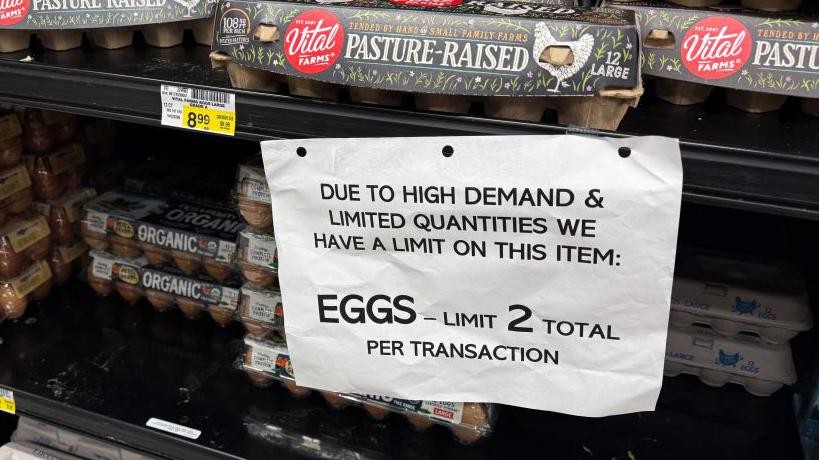
The United States will import hundreds of millions of eggs from Türkiye and South Korea to address severe shortages caused by an avian influenza outbreak and supply chain disruptions, according to Agriculture Secretary Brooke Rollins.
Speaking at the White House on Friday, Rollins announced that the imports are expected to help reduce egg prices, which have risen dramatically. Data from the Labor Department shows egg prices increased 15.2% in January 2025 alone - the steepest monthly jump since June 2015. Over the past five years, prices have soared by 230%.
The shortage stems from a devastating avian flu outbreak that has impacted poultry populations for nearly two years. As part of the response, Türkiye has committed to export 15,000 tons of eggs by June 2025. The U.S. is also in discussions with additional countries about potential imports.
The import strategy is one component of a broader five-point plan unveiled in early March to address the crisis. The plan includes a $1 billion investment aimed at stabilizing the market and preventing future outbreaks.
Rollins emphasized that enhanced biosecurity measures, particularly restricting access to poultry barns, have helped reduce bird flu cases. The administration is also working to rebuild domestic egg-laying hen populations, though Rollins noted this process has faced regulatory hurdles.
"When our chicken populations are repopulated and we've got a full egg laying industry going again... we then shift back to our internal egglayers and moving those eggs out onto the shelf," Rollins said.
The temporary reliance on imports represents an unusual step for the U.S. egg industry, highlighting the severity of the current supply challenges. Officials express optimism that the comprehensive response plan will help normalize the market in the coming months.